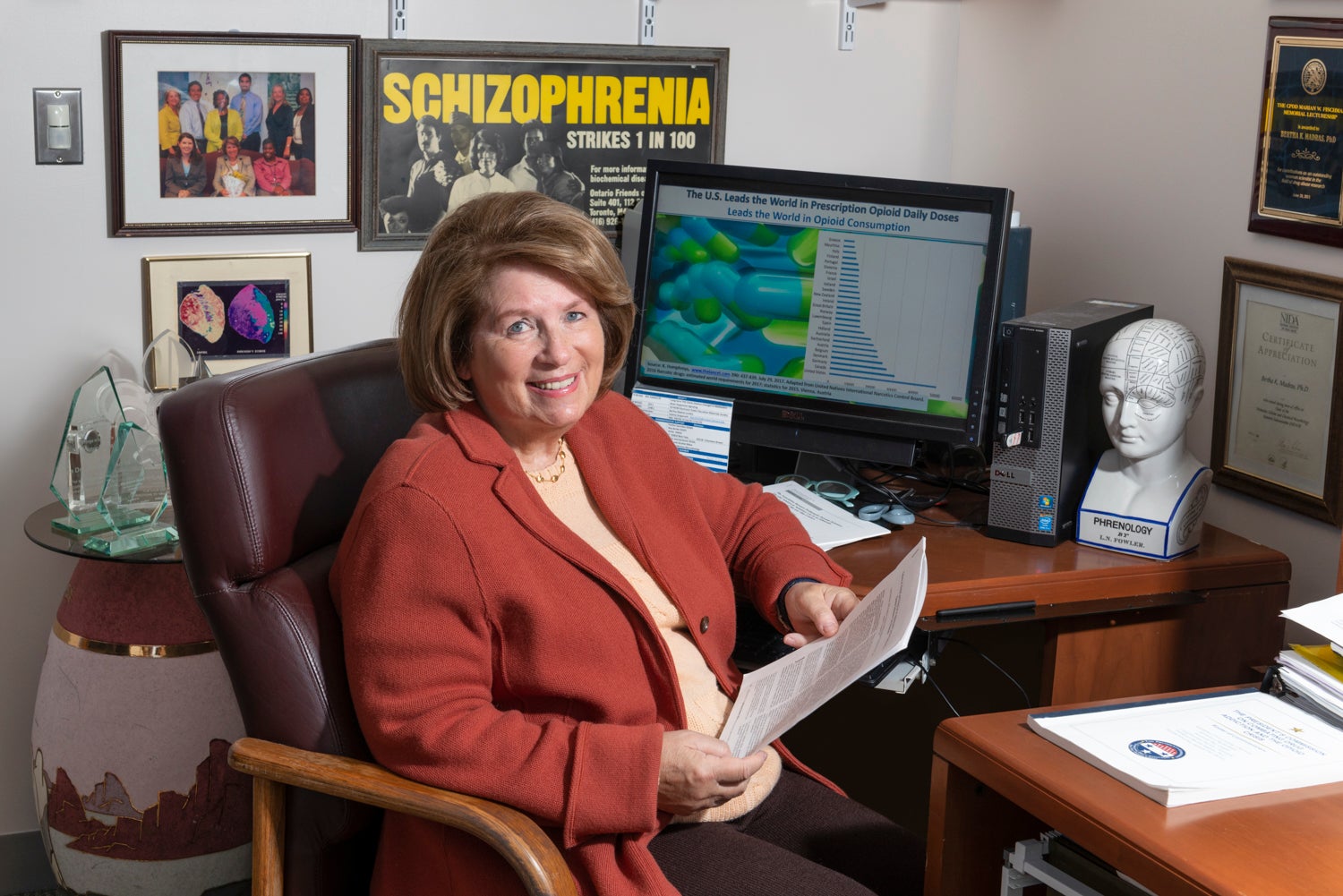Director, Laboratory of Addiction Neurobiology, McLean Hospital
Professor of Psychobiology, Department of Psychiatry , Harvard Medical School

Bertha Madras is Professor of Psychobiology, Harvard Medical School, and directs the Laboratory of Addiction Neurobiology at McLean Hospital. Her laboratory has focused on translational research, neurobiology of therapeutic and addictive substances, brain imaging, and medications development. Her laboratory discovered a class of compounds that are the most sensitive diagnostic imaging agents to detect Parkinson’s disease in living brain of patients. Using PET imaging, her research clarified drug mechanisms, abuse liability, and relationship between genotype and protein expression in living brain. Her current research focuses on the behavioral and molecular consequences of drugs introduced to adolescent primates, and whether these responses differ in adults. She is recipient of 19 U.S. and 27 international patents with collaborators. As an educator, Dr. Madras developed the first addictions course for HMS students and created the Cell Biology of Addiction Course at Cold Spring Harbor Laboratory. She directed the creation of a Museum exhibit, CD (“Changing your mind: Drugs in the Brain”, licensed by Disney), and play, with the Museum of Science, Boston. In public policy, Dr. Madras served as Deputy Director for Demand Reduction in the White House Office of National Drug Control Policy, a Presidential appointment confirmed unanimously by the U.S. Senate. In 2016, she served as a panelist at the Vatican Pontifical Academy of Sciences, “Narcotics: Problems and Solutions of this Global Issue” and in 2017, was appointed by President Trump to a 6-member Commission on Combating Drug Addiction and the Opioid Crisis. She is recipient of an NIH MERIT award, NIDA Public Service Award, American Academy of Addiction Psychiatry Founders’ Award, and others. The Better World Report (2006) cited her brain imaging invention as “one of 25 technology transfer (university to industry) innovations that changed the world”.
